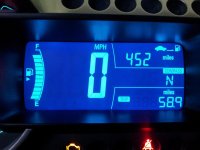Here's a list of stations that sells Ethanol-Free gasoline: Ethanol-free gas stations in the U.S. and Canada
Ethanol can reduce fuel economy by up to 20%, as well as reduce power output.
Reasons to not use Ethanol:
- Ethanol can eventually corrode metal.
- Ethanol is a Hygroscopic substance, meaning it attracts water around it and retains it.
- The Clean Fuels Report comparison of fuel emissions show that ethanol exhaust generates 2.14 times as much ozone as does gasoline exhaust.
- Ethanol combustion yields significantly larger amounts of formaldehyde and acetaldehyde.
- Mechanics have seen increased cases of damage to small engines, in particular, the carburetor, attributable to the increased water retention by ethanol in fuel.
- Due to its high miscibility with water it cannot be efficiently shipped through modern pipelines, like liquid hydrocarbons, over long distances. This means it costs more to ship, which means federal subsidies for Ethanol production is higher.
- Ethanol-blended gasoline has a shorter shelf-life compared to conventional gasoline. Often called 'bad gas', once gasoline goes stale it can clog fuel injectors and cause performance issues.
Post here your comparison results of E10 vs Ethanol-Free MPG. Anyone that has ever heard the phrase, 'Did you get water in your gas?', knows that anything you use that attracts and retains water will hurt your engine as well as fuel economy.
Ethanol can reduce fuel economy by up to 20%, as well as reduce power output.
Reasons to not use Ethanol:
- Ethanol can eventually corrode metal.
- Ethanol is a Hygroscopic substance, meaning it attracts water around it and retains it.
- The Clean Fuels Report comparison of fuel emissions show that ethanol exhaust generates 2.14 times as much ozone as does gasoline exhaust.
- Ethanol combustion yields significantly larger amounts of formaldehyde and acetaldehyde.
- Mechanics have seen increased cases of damage to small engines, in particular, the carburetor, attributable to the increased water retention by ethanol in fuel.
- Due to its high miscibility with water it cannot be efficiently shipped through modern pipelines, like liquid hydrocarbons, over long distances. This means it costs more to ship, which means federal subsidies for Ethanol production is higher.
- Ethanol-blended gasoline has a shorter shelf-life compared to conventional gasoline. Often called 'bad gas', once gasoline goes stale it can clog fuel injectors and cause performance issues.
Post here your comparison results of E10 vs Ethanol-Free MPG. Anyone that has ever heard the phrase, 'Did you get water in your gas?', knows that anything you use that attracts and retains water will hurt your engine as well as fuel economy.
Last edited:


